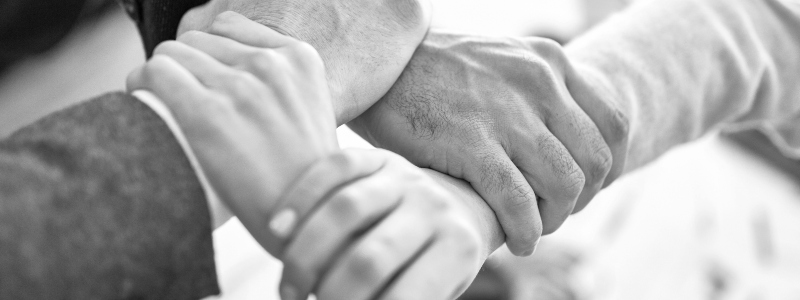Attachment theory is something I draw on a lot in my practice. However, unlike psycho-analytic theory, the concepts are relatively simple. Simply put, attachment theory describes how we respond to relationships.
There are broadly four different styles (or, as I prefer to think of them – adaptations) of attachment: secure; avoidant, ambivalent; and disorganised. Briefly, they are defined as follows:
Secure individuals are people who received ‘good enough’ parenting (Winnicott) and feel they are able to navigate life without unnecessarily reacting to emotions and either becoming overwhelmed (fight) or dissociating (freeze). They are also people who, generally, feel like they can get their needs met in relationships and for whom intimacy is possible. Bar some later trauma in life, securely attached individuals rarely present for therapy.
Avoidant (adapted) individuals are those of us who feel that relationships are inherently unsafe and that they cannot rely on the other. They have a tendency to keep people at arm’s length, especially when they experience a relational stressor. To cope, they may make themselves unavailable to their partner (through other commitments) and avoid being vulnerable.
Ambivalent (adapted) individuals struggle with the internal conflict of wanting intimacy and thus moving into relationships quite quickly, only then to slam on the brakes when they perceive an attachment disruption. They feel trapped (under stress) between wanting closeness but pulling away for fear of being hurt.
Disorganised (adapted) individuals are people who have experienced significant childhood developmental trauma and have more than likely been born to mothers who have also been traumatised at a relatively young age. They are people who struggle enormously to contain (in the body) their feelings and to make sense of them (mentalise). Relationships for people with a disorganised attachment adaptation are fraught with threats, intensity and chaos. It is likely that individuals presenting with this attachment adaptation as their predominant style may have a personality disorder. And, yet, personality disorders can be treated too, under the right clinical conditions.
Misconceptions
As is often the case with models and classifications, people can believe that they have one attachment style and that this is fixed. Whilst we may have developed a default adaptation in relating, this adaptation only surfaces when we are under stress. Let me explain:
Imagine you are with another with whom a budding relationship is developing. You are both relaxed and sitting in the sun in a place that both makes you feel safe and comfortable. There are no stressors present – alcohol, drugs, conflicting conversations, other people who may threaten your relationship, etc. In this context, irrespective of what your default adaptation may be, you will most probably be in a state of secure attachment. That is, in a secure relationship with yourself and the other. This is really critical to understand, as it means that even in those of us who have experienced significant childhood developmental trauma and attachment disruption, the propensity to feel securely attached resides in us all and can be built upon in the therapeutic work.
Neuroscience and neuroendocrinology
What makes attachment particularly interesting is that it requires a focus on mind–body integration, as all emotions originate in the body (see my blog on the pyramid of change) and we need a mind to help us make sense of what we are feeling.
Theoretically, attachment principles can be applied to any psychotherapy ‘model’. as long as the emphasis is on helping the client understand what they are sensing in their body; what this feeling is telling them; how to contain it; how to make sense of it.
However, attachment theory is coming to the fore of psychotherapy thinking around change that happens as the principles of healthy attachment are being evidenced through neuroscience findings.
Neuroscience is showing that when we are securely attached, we are able to feel our emotions without becoming overwhelmed and reacting. And it is showing how our fear centre of the brains (the limbic system) can become primed to react at the slightest perceived danger.
Neuroendocrinology – the study of brain and body (hormone system) integration is showing us that secure attachment is a state of optimal health in both the brain and the body. In brief, to be in a state of insecure attachment leads to higher stress hormones being present in the body; lower immunity; higher anxiety; and less ability to mentalise.
Mind-body integration in attachment reparation
How do attachment adaptations come about? Why would one child generally be considered securely attached and another a variant of insecure? The answer to this is complex. However, two variables stand out above all others, and those are how much the child was attuned to as an infant (particularly pre-verbal) and how much the child was encouraged to be themselves in the relationship with their primary caregivers.
It is these two variables that stand relational psychotherapy is a very strong position to repair attachment trauma – to re-parent the client.
The role of the therapist is therefore to help the client understand what they are sensing and feeling in their body and what feeling that translates to: a variant of the five core emotions of joy; anger; fear; sadness; and disgust.
The therapist is then there to work with the client in remaining present to the feelings in their body – avoiding overwhelming or dissociation – so that little by little the client learns to navigate their universe of emotions. And how does all of the above happen? Through careful attunement – nervous system to nervous system; body to body; mind to mind – and through validation of what the client discovers they feel.
Secure attachment is the goal of therapy for a healthy mind; healthy emotional system; healthy immune and endocrinology system; and healthy relationship patterns (intimacy with self and other). Sounds like a good goal to me!
Mark Vahrmeyer is a UKCP Registered Psychotherapist working in private practice and palliative care.
Click here to download our guide on attachment for more information.

Leave a Reply